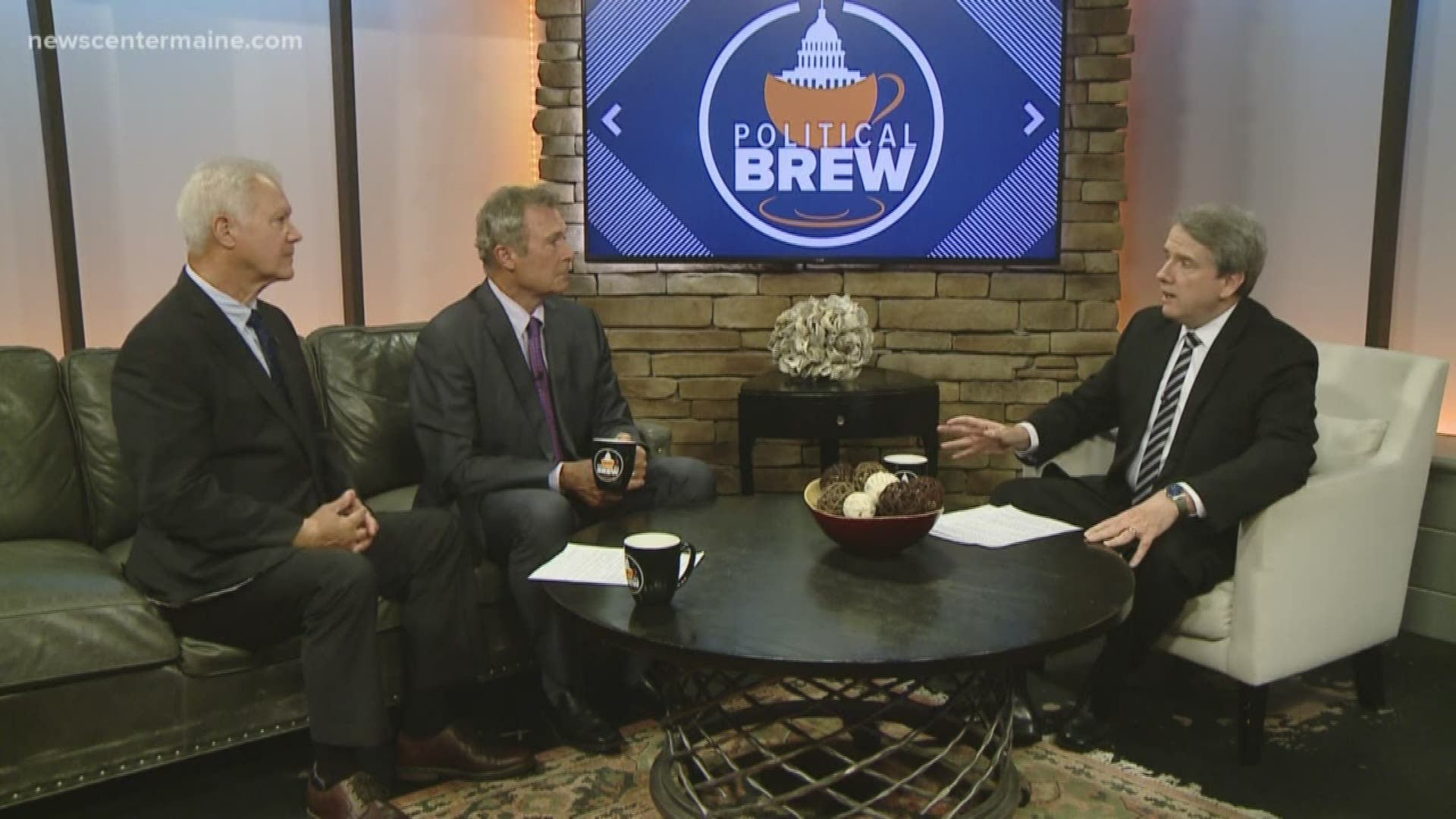AUGUSTA, Maine — A bill that would allow ranked-choice voting to be used in Maine's upcoming presidential elections is set to become law.
Gov. Janet Mills announced Friday she plans to let LD 1083, approved by lawmakers Aug. 26, to become law without her signature in January.
Maine's next presidential primary is in March, and this bill would presumably apply to the 2020 general election next November.
With this decision, according to NEWS CENTER Maine's Pat Callaghan, comes a possible scenario in which Maine's electoral votes are needed to determine the winner next year, and the country must wait a week or more for the answer.
"By not signing this bill now, I am giving the Legislature an opportunity to appropriate funds and to take any other appropriate action in the Second Regular Session to fully implement ranked-choice voting in all aspects of presidential elections as the Legislature sees fit," Gov. Mills said in a statement.
Despite this said opportunity to fully implement RCV in all aspects of Maine's 2020 presidential elections, a spokesperson confirmed to NEWS CENTER Maine that it would not apply to the primary and only to the November general.
Mills had until midnight Friday to make a decision.
RELATED: Mills faces deadline on bill to use RCV in presidential primaries
POLITICAL BREW: Battling over bonds & ranked choice
RELATED: Mainers may be 1st in nation to cast RCV votes for president
Here's the full memo text of Mills' memo to the Legislature:
"I am permitting L.D. 1083 to become law without my signature, allowing ranked-choice voting to be used in the general election for presidential electors in November 2020. My experience with ranked-choice voting is that it gives voters a greater voice and it encourages civility among campaigns and candidates at a time when such civility is sorely needed. At the same time, there are serious questions about the cost and logistics of ranked-choice voting, including collecting and transporting ballots from more than 400 towns in the middle of winter, and questions remain about the actual impact of this particular primary on the selection of delegates to party conventions.
"At the time the bill authorizing presidential primaries was enacted in late June, the Senate decided to hold L.D. 1083 because of its fiscal impact on state and local governments. In enacting this bill late in the day on August 26, the Senate did not add any appropriation, nor did it clarify how the will of the voters would be reflected in the selection of delegates and in the ultimate nomination of a candidate for President. By not signing this bill now, I am giving the Legislature an opportunity to appropriate funds and to take any other appropriate action in the Second Regular Session to fully implement ranked-choice voting in all aspects of presidential elections as the Legislature sees fit.
"As for the general election for presidential electors, the law will allow voters to use ranked-choice voting in the fall of 2020 if there are three or more candidates, requiring a majority vote instead of a plurality vote. The law will still require that one presidential elector be chosen from each congressional district and two electors to be chosen at large, but ranked-choice voting could well make a difference if there are more than two candidates and if no candidate achieves more than fifty percent in the first round of tabulation in one of the two Congressional districts or in the at large count. The two at large electors would both represent the one winner in the statewide tabulation for President.
"In the case of the presidential primary, the purpose is not to elect an individual or to choose electors for President, but to allow the party using the primary system to apportion delegates to its convention. Even without this bill, however, the parties could still use ranked-choice voting, or some similar process, in the selection of delegates. Depending on state and national party rules, a party which uses a primary presidential election could elect delegates to the party convention without reference to the results of the primary, and they may select delegates by ranked-choice voting, or some similar method, at the municipal caucuses held in March, per 21-A MRS §311. The party will be free to employ ranked-choice voting in the very process that is most likely to influence which presidential candidates the delegates to the national convention represent in nominating a candidate for President. People whose candidates do not achieve the required threshold will be able to vote for someone else, and the purposes of ranked-choice voting can be fulfilled without making use it in the primary.
"I thank the sponsors of L.D. 1083 for presenting this bill and I am optimistic about the ability of political parties in Maine to implement ranked-choice voting at every level in an inclusive and fiscally responsible way in the upcoming presidential election year."

